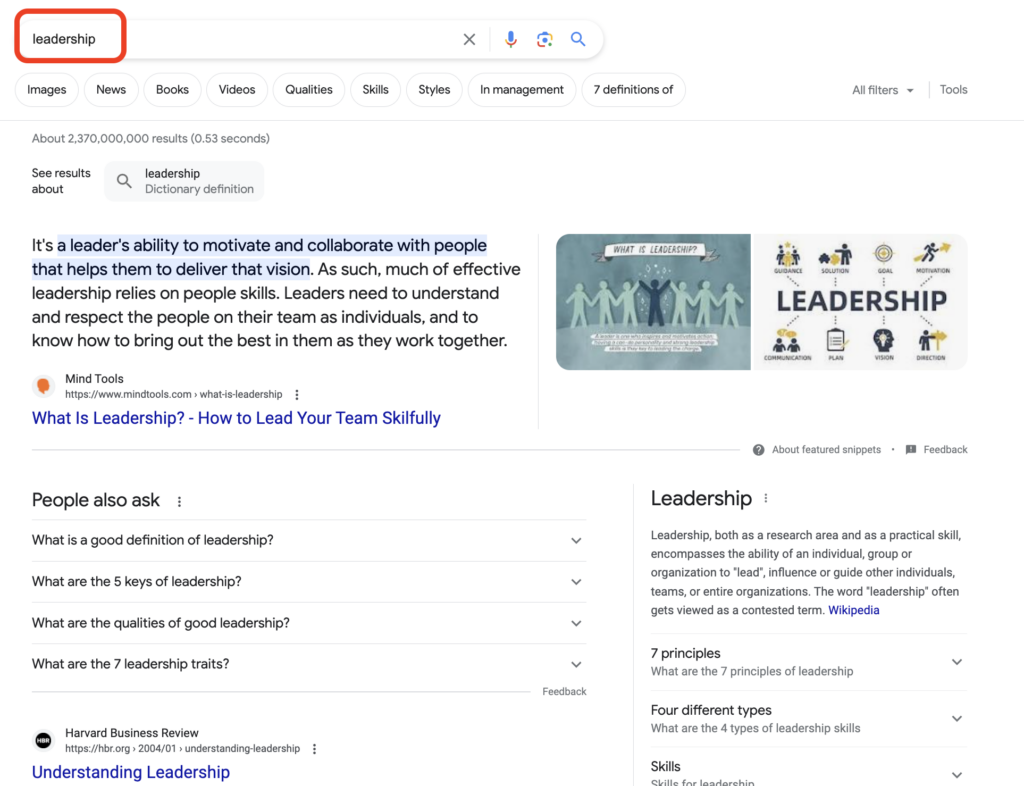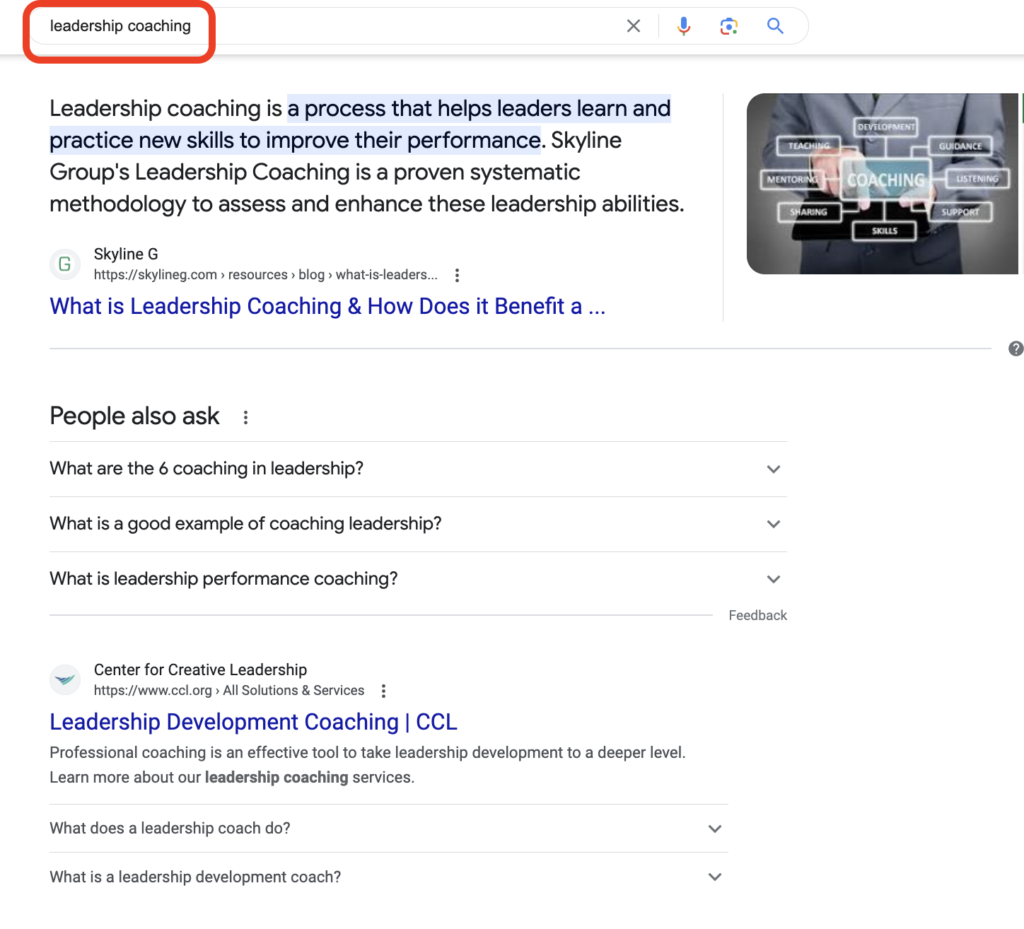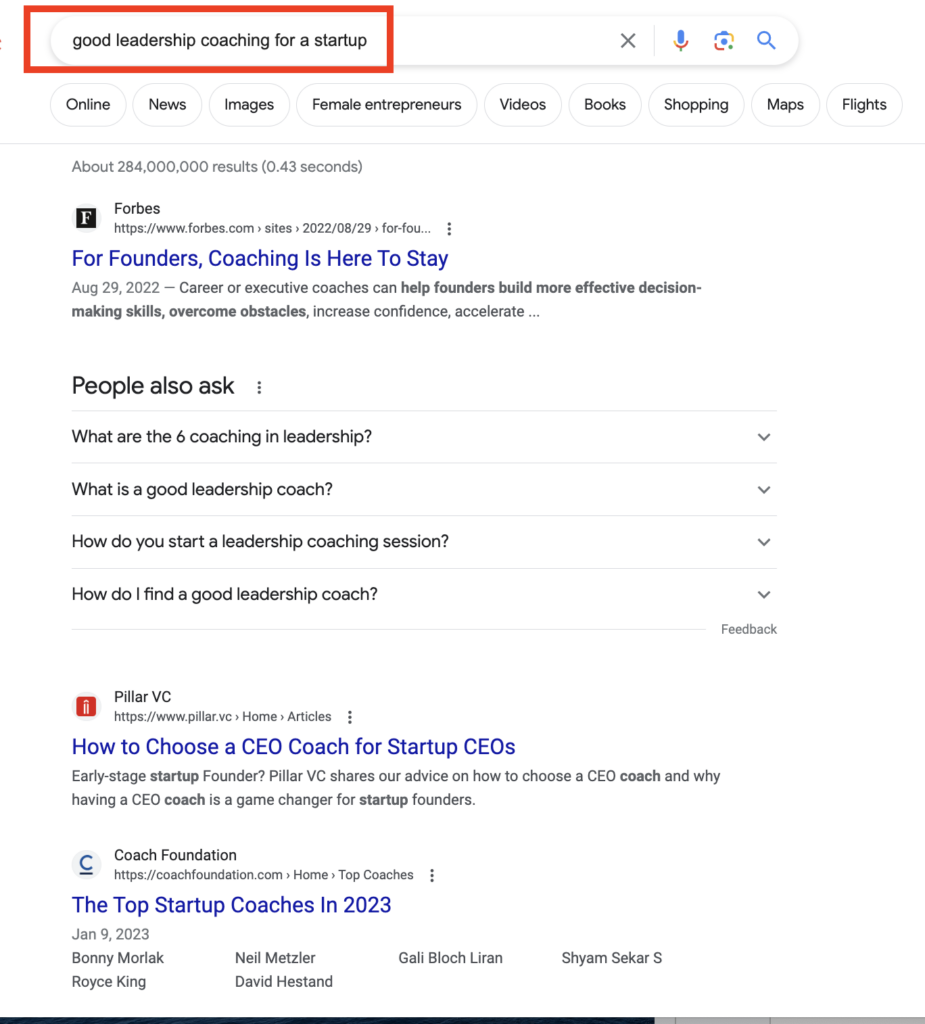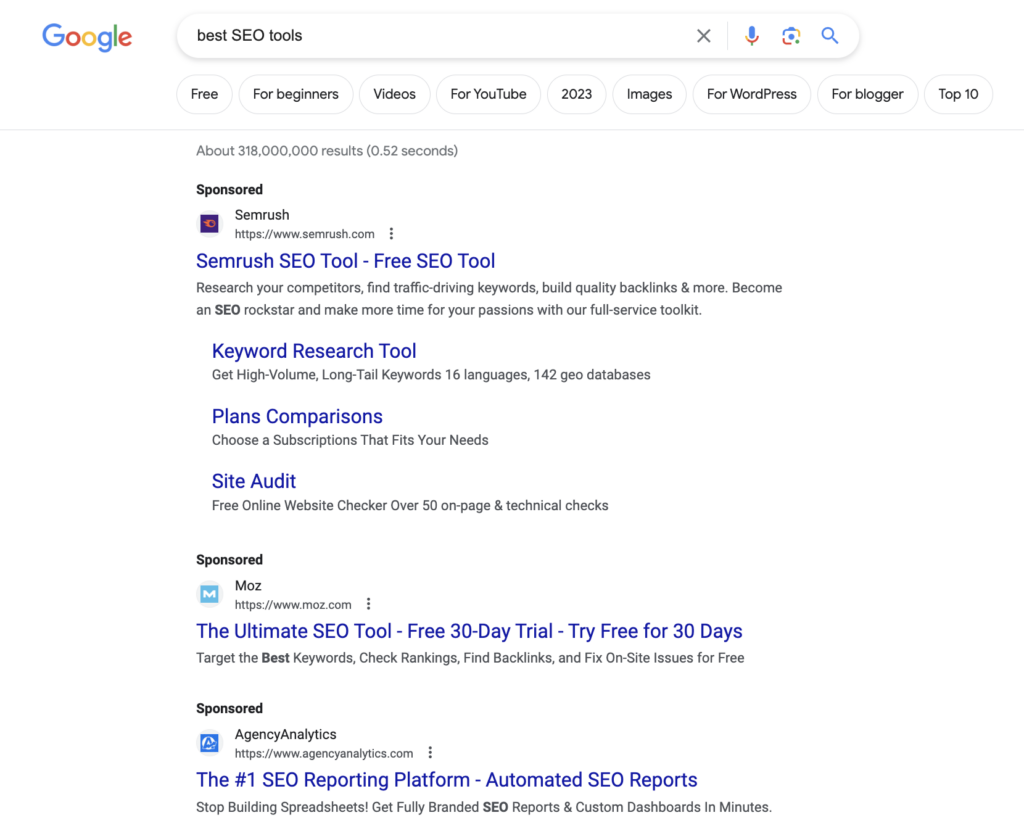
Keywords are never going out of style. They are key to your marketing strategy, brand awareness, and business growth. They are the way you reach new audiences, audiences that otherwise know nothing about you, and the way you stay in front of current audiences.
So what do you do if one, two, or a dozen competitors are utilizing your same keywords? How do you keep from being forced into the back of the crowd? Let’s take a look.
Table of Contents
What are keywords?
Keywords are the search terms that people type into a search engine in order to find relevant information for their questions. They can be one word or a longer phrase. Longer phrases with three or more terms are known as long-tail keywords.



How are keywords used to provide search results?
When keywords are used in content and on websites, search engines recognize that the content is relevant to the search query. This tells the search engine, such as Google, when the content should be displayed. These keywords also help site visitors if they are used well. For example, when used in blog titles, section headings, and website headings, keywords reassure readers that they are in the right place.
Keywords should also be used throughout content, but not solely within content. If they are only found buried in the middle of paragraphs, impatient readers can move on to another search result, one that more obviously provides an answer to their search query.
Now, as to where keyword content will rank on a search engine – that depends on around 200 other factors including domain authority, site usability, and how well the content meets the user’s needs.
What are competitive keywords?

High-competition keywords are those words and phrases targeted by a high number of organizations. Keyword research tools like SEMRush and Ahrefs will tell you how difficult it is to rank for a keyword, the average number of monthly searches for that keyword, the cost-per-click if you want to bid on the keyword for paid media, related keywords, an analysis of search results, and more.
This is very helpful for your planning purposes as trying to rank for these keywords – aka, appear on the first page of search results – means beating out a lot of other websites.
This is also why it’s helpful to find low-competition keywords to target as well. Specifically, high-volume, low-competition keywords are the sweet spot. These are keywords that a lot of people are searching for, but not a lot of sites are targeting.
However, what about those times when low-competition keywords don’t meet your needs and you absolutely need to work with hyper competitive keywords? Read on for a few strategies that will help you.
Hyper Competitive Keyword Strategy One: Use Long-Tail Keywords
Our first tip is to take a good, analytical look at your keywords. It might be that they are too broad. In that case, additional keyword research can highlight more specific, longer phrases to target. Remember, these phrases are known as long-tail keywords. With this approach, you might find some “low-hanging fruit” that others aren’t taking advantage of that will get you in front of your target audiences.
Hyper Competitive Keyword Strategy Two: Optimize Existing Content
What existing content do you have that should be ranking for these keywords? Compile a list. Then either manually review the content and find ways to optimize it, and/or work with an SEO tool that will perform the analysis for you.
A few things to consider:
- Create link-worthy content. If you don’t have any value to provide, no one will want to give you a backlink. Focus on creating user-friendly content using your target keywords. Then pitch that content to others and see if they will share it and link back to your site. You can also wait for others to find your content on their own and see how many backlinks are generated over time.
- Find articles and posts that mention you but don’t have a backlink. Reach out and politely ask them to update the post with a backlink.
- Focus on backlinks from websites that are trusted and credible. One backlink from an authoritative site is better than ten from random sites.
- If possible, include your keywords in the backlink. This lets Google know in what area you are considered an expert.
- Example: A look at the top ten SEO factors will tell you… vs. A look at The Mather Group’s latest study will tell you… – The first example uses the keyword phrase “top ten SEO factors.” If you want to rank for those keywords, it’s your goal to have them included in backlinks.
- Make sure that your backlinks are “dofollow” links and not “nofollow.” “Nofollow” links are ignored by search engines and won’t help with your rankings. However, if “nofollow” is the only option, and the backlinking site has a high volume of monthly visitors, the backlink can still be worthwhile as it helps boost brand awareness.
- Focus on backlinks from multiple sources. This is more powerful than one site linking to you a dozen times.
Hyper Competitive Keyword Strategy Five: Paid Media
If you’re not ranking on the first page of Google, you can always pay to change that. Ads, or sponsored content, appear above organic search results. This gets your name out there while you continue using other methods to improve your organic rankings.

The catch here is that hyper competitive keywords are going to cost you. They will have a very high cost per click. However, if you have the budget and want to outbid everyone, this is a strategy that can work for you.
Hyper Competitive Keyword Strategy Six: Boost Your Domain Authority
Domain authority (DA) is a representation of where your website stands in relation to all others. The higher the DA, the better. If your DA is lower than your competitors, and they are outranking you on hyper competitive keywords, you need to focus on improving your authority.
How do you do this? It’s a similar process to ranking for keywords – unsurprising, since all SEO is part and parcel of the same package. This will take strategies such as getting high-quality backlinks, creating popular content, and cleaning up and optimizing your site structure and data.
This will take time. However, all SEO is a long term strategy, so you should expect everything you do to take time. Just make sure you regularly review your progress and keep your goals top-of-mind to keep yourself on track.
Better rankings are possible

Don’t despair. Your audiences will find you and learn to love you. It takes time, hard work, and intentionality, but success is possible. If you want to chat with someone who’s seen and made it happen, give us a call any time.
- Do you use the keywords in your meta title and meta description?
- Do you have a title and headings with the keywords?
- Are you using a mix of keyword phrases throughout the content?




